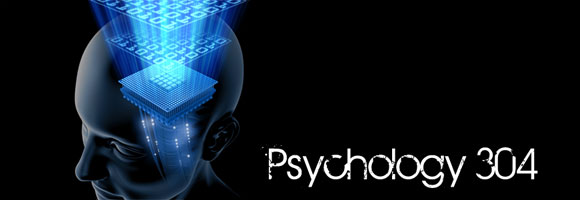
Course Outline
Course description
The neurobiological bases of behaviour; brain processes involved in perception, motivation, emotion, psychopathology, learning and memory. Open to all Arts and Science majors except those in the B.Sc. Psychology program. Credit will not be given for both PSYC 304 and PSYC 360.
Prerequisite: Either (a) PSYC 100 or (b) all of PSYC 101, PSYC 102 or (c) 6 credits of 200-level Psychology (but not 205 or 263).
Student or audience description
Psychology 304 is a course designed for students with an interest in understanding the relationship between the brain and behavior but who do not necessarily have any background in neuroscience or biological sciences. It is a course designed for Psychology Arts majors, as well as for individuals not majoring in psychology but who desire a psychology course for breadth. The course is not open to Psychology Science majors.
Ultimately, the course is for anybody with an interest in the brain and behavior. There are many adult learners who may be interested in this course as part of their ongoing education (for example, nurses, teachers, etc.).
Course objectives
This course provides an overview of the relationship between the brain and behaviour. Coverage will span a range of topics including neuroanatomy, psychopharmacology, neuorendocrinology, vision and hearing, sleep and circadian rhythms, reproductive and ingestive behaviour, and learning and memory in both humans and non-human species. There will also be a focus on human neurological and mental disorders across the lifespan including Alzheimer’s disease, schizophrenia, depression and autism.
After completing the course, students will be able to:
- Identify the functions of a full range of brain structures.
- Describe the methods used to collect information about the nervous system.
- Understand the impact of a range of neurotransmitters, hormones and psychoactive drugs on the behaviour of humans and other species.
- Use the vocabulary of neuroscience in describing brain functioning and behaviour.
- Describe the potential outcome of damage to nervous system structures.
- Write a summary of the research on a particular type of nervous system damage and draw conclusions as to the most valid interpretation of the data available.
Lesson topics and objectives
- The course consists of 21 topics covered across five modules
- All students must complete all 21 topics
- 16 of the topics correspond to a chapter in the assigned text
- 5 of the topics will be covered as online lessons (one online lesson for each of the five modules)
Course readings:
Textbook (Required)
- Carlson, Neil R. Foundations of Behavioral Neuroscience (with 12 month access MyPsychKit); 8th edition (2011); Pearson
OR
- Carlson, Neil R. Foundations of Physiological Psychology (with 12 month access MyPsychKit); 7th edition (2009); Allyn and Bacon
Please note:
The course textbook, Foundations of Physiological Psychology, 7th ed. (by Carlson, Neil R.), has now gone to a new edition with a different title, known as Foundations of Behavioral Neuroscience, 8th ed.
Both editions will be acceptable for Psyc 304 distance section 99A.
Text Website (Optional)
- MyPsychKit www.mypsychkit.com which includes further learning objectives, flashcards, and self tests along with links to other resources
